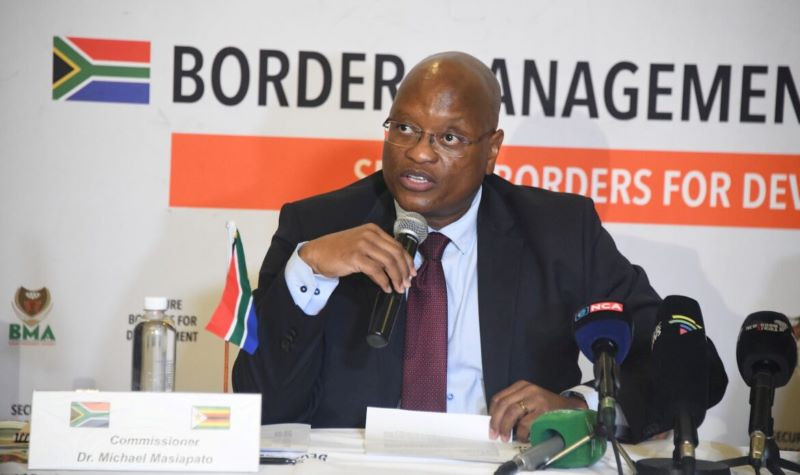
GOVERNMENT is in the process of establishing the Zimbabwe Border Ports Authority through an Act of Parliament.
This emerged during a four-day visit to South Africa last week by Zimbabwe border authorities after South African authorities recently intercepted several unaccompanied children travelling to the neighbouring country.
Speaking during the visit which ended on Saturday last week, South African Border Management Authority commissioner Michael Masiapato hailed the efforts being made by their Zimbabwean counterparts.
“As the Border Management Authority South Africa, we are encouraged by the process undertaken by the government of Zimbabwe in the development of the country’s Border Port Authority Bill,” Masiapato said.
“This is a critical step towards the establishment of the Zimbabwean border ports authority. We are committed to sharing our lessons on our journey of 15 years towards the establishment of the South African Border Management Authority.
“We do believe that moving away from a multi-agency approach as far as border management is concerned into an integrated border management model with a single command and control is the key step towards effective border management.”
Masiapato said efforts should also focus on the legitimate movement of persons and goods across borders, with the intention to grow the two nations’ economies and ultimately ensure the realisation of regional economic integration.
“We have a collective responsibility to prevent illegal activities at our ports of entry and the border law enforcement areas such as illegal migration, any kind of smuggling, human trafficking, and all kinds of cross border crimes inclusive of the illegal movement of weapons, and or illicit goods between our countries,” he said.
- Zim to establish ports authority
- We still have a long way to go
- SA’s border control authority piles pressure on Beitbridge
Keep Reading
Masiapato said the South Africa-Zimbabwe border had long been a symbol of the intricate web of connections between the two countries.
“It is a border that does not just demarcate land but also represents a bridge of cultural, economic and historical exchanges that we enjoyed over the years,” he said.
He noted that besides geographic proximity, the two countries have a common and long history of regional affiliation as well as great aspirations for shared development.
“Therefore, it is in our interest to ensure effective border management which is crucial for ensuring the ultimate prosperity of both South Africa and Zimbabwe. Although co-operation on border management matters commonly embraces the aspects of enforcing territorial sovereignties, it also streamlines efforts for fostering economic growth and improvement in trade relations between nations.
“As the two jurisdictions within this sub-region, we have the responsibility to drive the objective of regional economic integration as articulated in the many resolutions of our leadership within the Sadc context,” Masiapato said.
Zimbabwean border authorities visited South Africa to learn from neighbouring country’s model of administration and border management co-ordination.
“We have had a development in the recent past regarding the issue of the unaccompanied minors who were effectively attempting to move between our borders without necessarily having the requisite documentation,” Masiapato added.
“We want to indicate that that particular aspect is to be finalised and engaged upon by members of our colleagues here led by the director-general of the Department of Social Development.”
The intercepted children have since been sent back to Zimbabwe to reunite them with their families.










